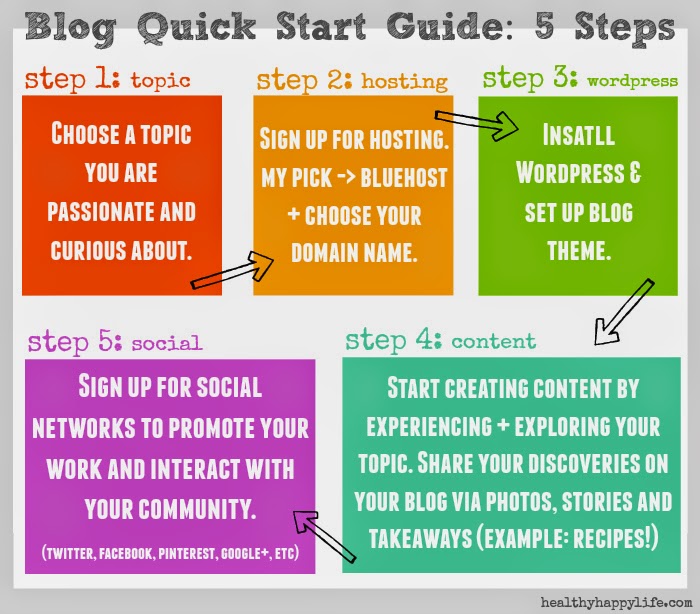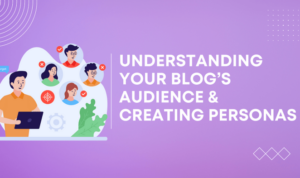How to Start a Blog sets the stage for your digital journey with swag and style, offering insights that will make you the coolest blogger in town. Get ready to rock the blogosphere!
From choosing a niche to monetizing your blog, this guide has got you covered with all the essentials to kickstart your blogging adventure.
Choose a Niche
Selecting a niche for your blog is crucial for attracting the right audience and establishing your expertise in a specific area. It helps in creating focused content that resonates with your target readers and sets you apart from the competition.
Research and Identify a Profitable Niche
To find a profitable niche, start by researching popular trends, s, and market demand. Analyze your interests, skills, and experiences to identify areas where you can provide valuable content. Consider the competition and potential for monetization within the niche.
- Use tools like Google Trends, Planner, and social media insights to explore trending topics and search volume.
- Look for gaps in the market where you can offer unique perspectives or solutions.
- Consider the audience size and purchasing power of the niche to determine its profitability.
Passion and Expertise in Niche Selection
Choosing a niche that aligns with your passion and expertise is essential for long-term success and content sustainability. Your enthusiasm for the topic will keep you motivated to consistently create engaging content, while your expertise will build credibility and trust with your audience.
- Identify your hobbies, interests, and areas of expertise to uncover niches that you are genuinely passionate about.
- Reflect on your skills, knowledge, and experiences that can add value to the chosen niche.
- Engage with communities related to your niche to stay updated on trends, challenges, and opportunities.
Select a Blogging Platform
When it comes to starting your own blog, choosing the right platform is crucial. There are several popular options out there, including WordPress, Blogger, and Medium. Each platform has its own set of pros and cons, so it’s important to consider your needs and goals before making a decision.
WordPress
- Pros:
- Highly customizable with a wide range of themes and plugins available.
- Great for and offers flexibility in terms of design and functionality.
- Cons:
- Requires a bit of a learning curve for beginners.
- You are responsible for managing your own site, including updates and security.
Blogger, How to Start a Blog
- Pros:
- Owned by Google, which can help with and visibility on the search engine.
- Easy to use and great for beginners with a simple interface.
- Cons:
- Not as customizable as WordPress with limited themes and plugins.
- May not offer as much control over your content as other platforms.
Medium
- Pros:
- Great for writers looking to reach a wide audience with its built-in community.
- Simple and easy to use without the need for technical skills.
- Cons:
- Limited design options compared to other platforms.
- You don’t have full control over your content or the platform itself.
Set Up Your Blog
Setting up a blog using WordPress is a straightforward process that can be done in a few simple steps. Here’s a beginner-friendly guide to help you get started.
Customizing Blog Themes
Customizing your blog theme is essential to make it unique and visually appealing. Follow these steps to customize your WordPress blog theme:
- Log in to your WordPress dashboard.
- Go to the “Appearance” section and click on “Themes.”
- Choose a theme that you like and click on the “Customize” button.
- From here, you can customize various elements of your theme such as colors, fonts, layout, and more.
- Make sure to preview your changes before saving them to ensure they look the way you want.
Creating Essential Pages
Creating essential pages like About, Contact, and Privacy Policy is crucial for your blog’s credibility and user experience. Here’s why these pages are important:
- About Page: This page helps visitors learn more about you and your blog, building trust and connection.
- Contact Page: Allows readers to easily get in touch with you, whether for collaboration opportunities or to ask questions.
- Privacy Policy: Essential for transparency and compliance with data protection laws, reassuring visitors about how their information is handled.
Create Quality Content

Creating high-quality and engaging content is crucial for the success of your blog. Quality content not only attracts more readers but also keeps them coming back for more. It helps you build credibility, establish authority in your niche, and ultimately grow your blog.
Structuring Blog Posts for Readability and User Engagement
When structuring your blog posts, it’s important to keep readability and user engagement in mind. Here are some tips to help you create posts that are easy to read and captivating for your audience:
- Start with a compelling headline that grabs the reader’s attention.
- Use subheadings to break up the content and make it easier to scan.
- Include bullet points or numbered lists to organize information and make it more digestible.
- Add images, videos, or infographics to enhance the visual appeal of your posts.
- Write in short paragraphs and use simple language to keep readers engaged.
Remember, the goal is to make your content easy to consume and enjoyable to read.
The Importance of Consistency in Posting Content
Consistency is key when it comes to blogging. Posting regularly not only keeps your audience engaged but also helps with search engine optimization. Here’s why consistency matters:
- Regular updates show your readers that you are committed to providing valuable content.
- Search engines favor websites that are updated frequently, leading to better visibility and higher rankings.
- Consistent posting establishes a routine for your readers, keeping them coming back for more.
- Plan a content calendar to stay on track and ensure you are posting consistently.
Promote Your Blog: How To Start A Blog

To increase visibility and attract more readers to your blog, you need to implement effective promotional strategies. Utilizing social media platforms, networking with other bloggers, and engaging with the blogging community are key components to driving traffic to your site.
Utilize Social Media
- Share your blog posts on various social media platforms such as Facebook, Twitter, Instagram, and Pinterest to reach a wider audience.
- Engage with your followers by responding to comments, asking for feedback, and creating interactive posts to encourage sharing.
- Utilize social media analytics to track the performance of your posts and identify which platforms are driving the most traffic to your blog.
Network with Other Bloggers
- Reach out to other bloggers in your niche to collaborate on projects, guest post on each other’s blogs, or participate in blogging communities and forums.
- Attend blogging conferences, webinars, and events to connect with like-minded individuals and learn from experienced bloggers in the industry.
- Building relationships with other bloggers can lead to opportunities for cross-promotion, backlinks, and increased visibility for your blog.
Engage with the Blogging Community
- Participate in blogging challenges, link-ups, and blog hops to connect with other bloggers, gain exposure, and attract new readers to your blog.
- Join blogging groups on social media platforms or online forums to share your content, ask for advice, and support fellow bloggers in the community.
- Comment on other blogs, share their posts, and engage with their content to build relationships and establish yourself as an active member of the blogging community.
Monetize Your Blog
Monetizing your blog is a crucial step in turning your passion into a profitable venture. There are various methods to generate income from your blog, including affiliate marketing, sponsored posts, and ad revenue. It’s essential to find a balance between earning money and maintaining the authenticity of your content while also building a loyal audience for successful monetization.
Affiliate Marketing
Affiliate marketing involves promoting products or services from other companies on your blog. You earn a commission for every sale or lead generated through your referral links. To effectively monetize your blog through affiliate marketing, choose products or services that align with your niche and audience. Be transparent about your affiliate relationships to maintain trust with your readers.
Sponsored Posts
Sponsored posts are another way to make money from your blog. Brands pay you to create content promoting their products or services. When working on sponsored posts, make sure to disclose any partnerships or sponsored content to your audience. It’s essential to only collaborate with brands that resonate with your values and are relevant to your audience to maintain authenticity.
Ad Revenue
Ad revenue is generated through displaying ads on your blog. You can work with ad networks like Google AdSense to place ads on your site and earn money based on clicks or impressions. To maximize ad revenue, consider the placement of ads on your blog to ensure they are visible but not intrusive to the user experience. It’s important to balance monetization efforts with providing valuable content to your audience.

